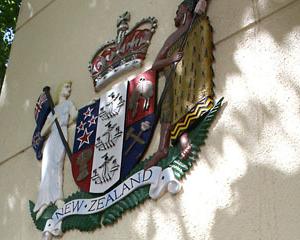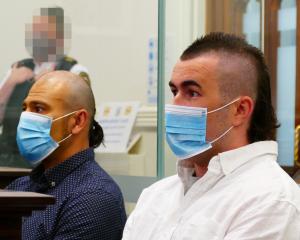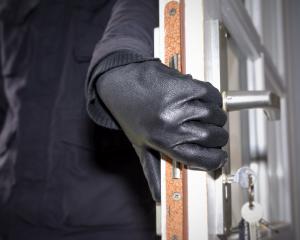
And the New Zealand police have expressed interest in using the sophisticated internet skills of self-taught teenager , who lives in the small Coromandel Peninsula town of Whitianga.
The infamous young hacker, who turns 19 on Saturday, seems suddenly to have the world at his feet - on the right side of the law.
Usually showing little emotion publicly, Walker smiled broadly from the dock of the High Court in Hamilton today when Justice Judith Potter discharged him without conviction on six charges covering illegal use of a computer system.
The most serious count - committed when he was aged 16 - carries a maximum sentence of seven years' prison.
Walker's mother, Shelley Moxham-Whyte, wiped away tears in the public gallery. Alongside her were relieved husband Billy and younger son Riley, 15.
The sentencing was the culmination of a lengthy Federal Bureau of Investigation cyber crime investigation spanning the United States, Europe and New Zealand and dubbed "Bot Roast". It resulted in Walker's arrest last November, nearly two years after he started experimenting with bot programs, and was the first prosecution of its kind in this country.
An unlikely criminal, the fresh-faced, long-haired teen was accused of masterminding a scam which infected more than a million computers and contributing to many millions of dollars in damage.
Using the cyber ID "Akill", Walker was the ring-leader of a small but elite botnet coding group known as the A-Team. He admitted knowing what he was doing was illegal but had not considered it criminal.
Walker told investigators he was fascinated by botnets - a network of hacked computers able to be controlled via the internet by a single computer - and the ability to control an army of robotically linked computers.
What he developed was a "significant enhancement" on previous bot code, considered by international cyber crime investigators to be among the most advanced bot programming they had encountered.
Walker's system contained a number of special features that protected it from discovery, allowed it to spread automatically and to identify and destroy rival bot codes.
Sitting at home in Whitianga, the teenager designed a unique virus that used encryption and was not able to be detected by anti-virus software.
Walker controlled his botnet using servers outside New Zealand, mainly based in Malaysia.
When the opportunity to make money out of his pastime passion arose, it was too good to resist and he earned $36,174.
His parents knew he was making money out of internet activity but did not know it was illegal. He invested some of his earnings in their Whitianga business, Paradise Cabs, and used some to finance his computer interests.
Justice Potter ordered Walker to pay $9526 in reparation to the University of Pennsylvania, whose computers were affected. He must also pay costs of $5000 in instalments from his low wage as a computer programmer for a Whitianga company and surrender his computer related assets to the police.
And what of the future? A beaming Walker would not reveal after his sentencing which big international companies had offered him work.
Waikato crime services manager Detective Inspector Peter Devoy said police had "disclosed our hand in court" by admitting they were potentially interested in using Walker's skills.
"We certainly recognise his potential but haven't yet considered the next step."











